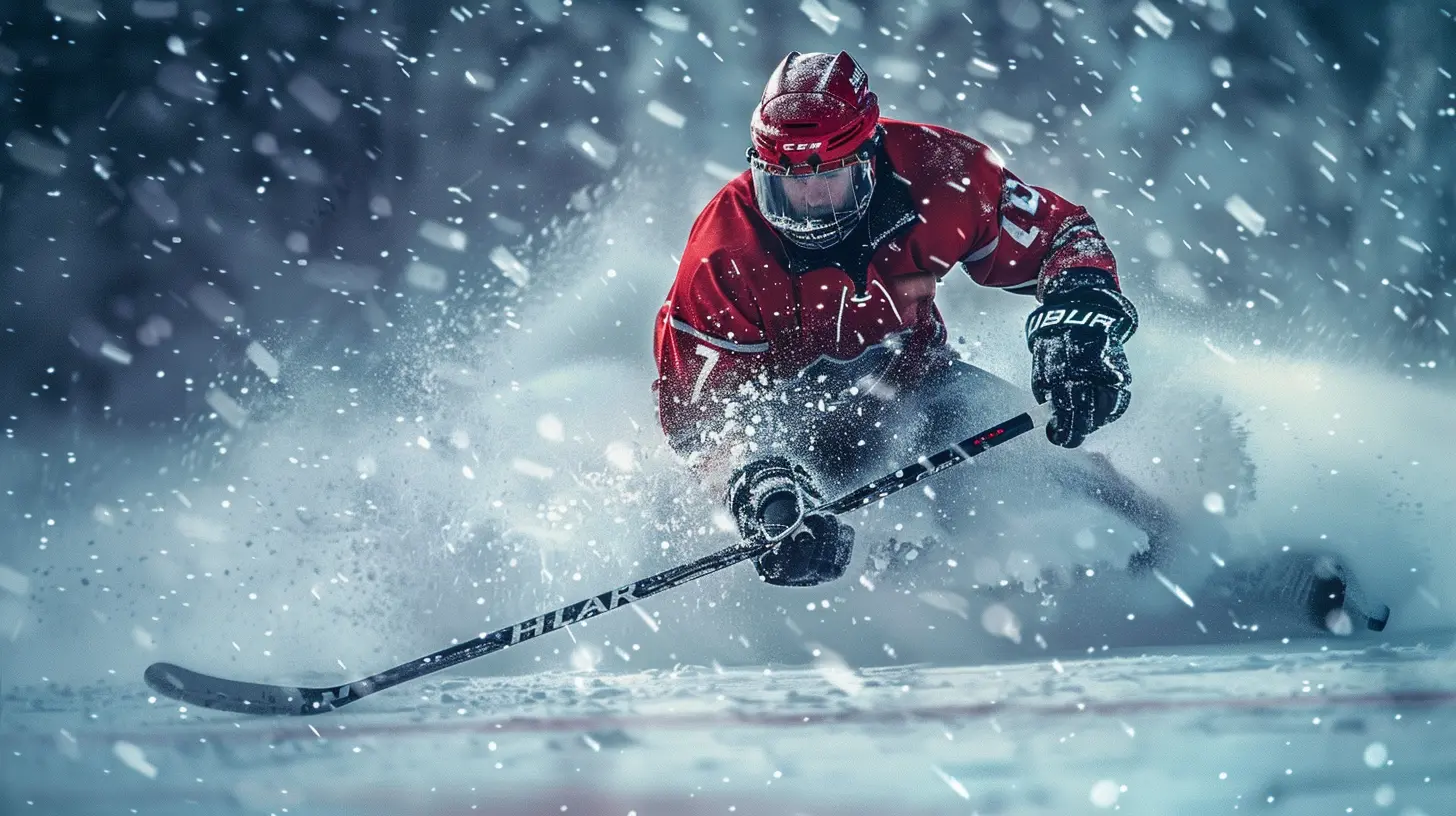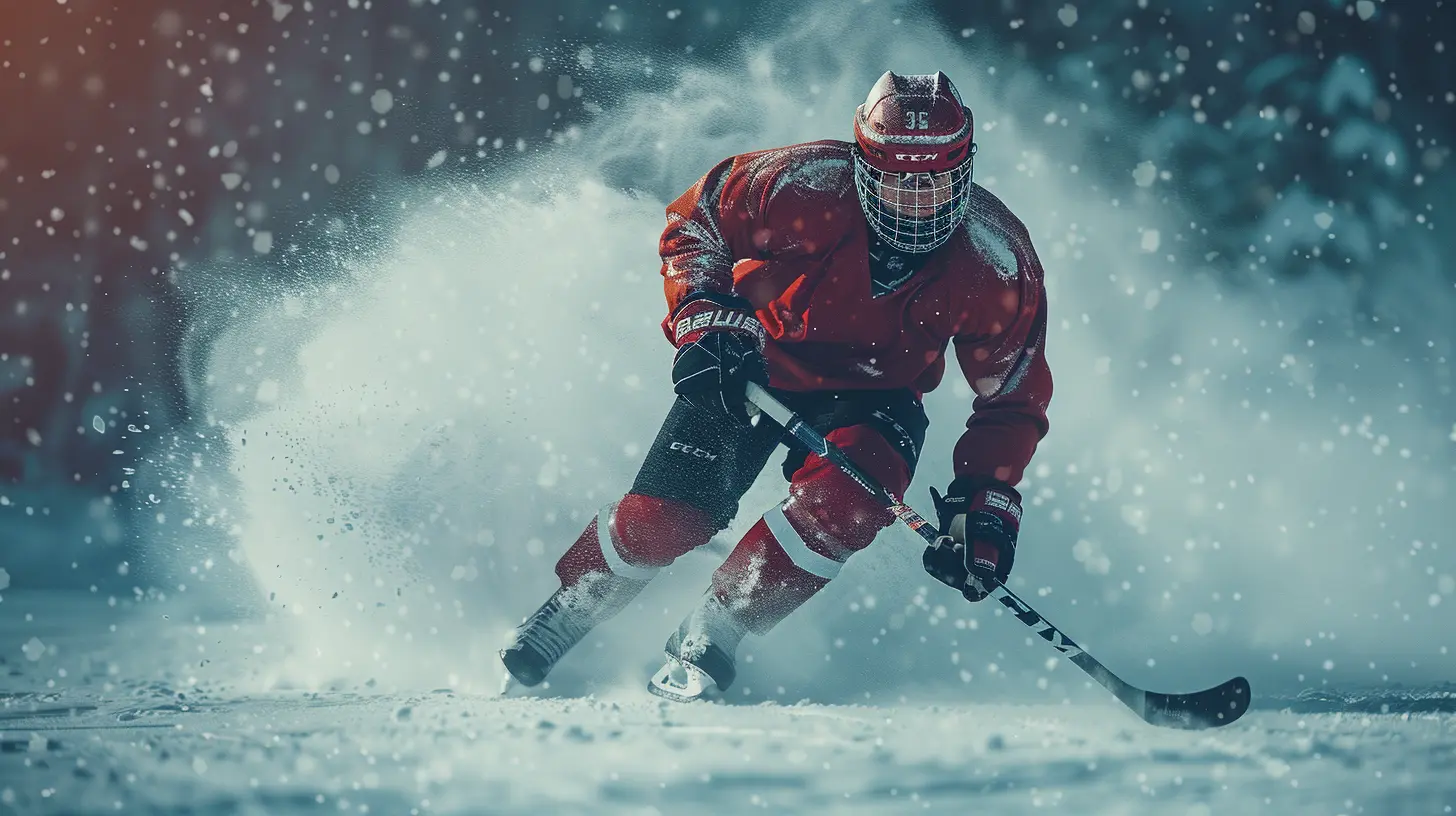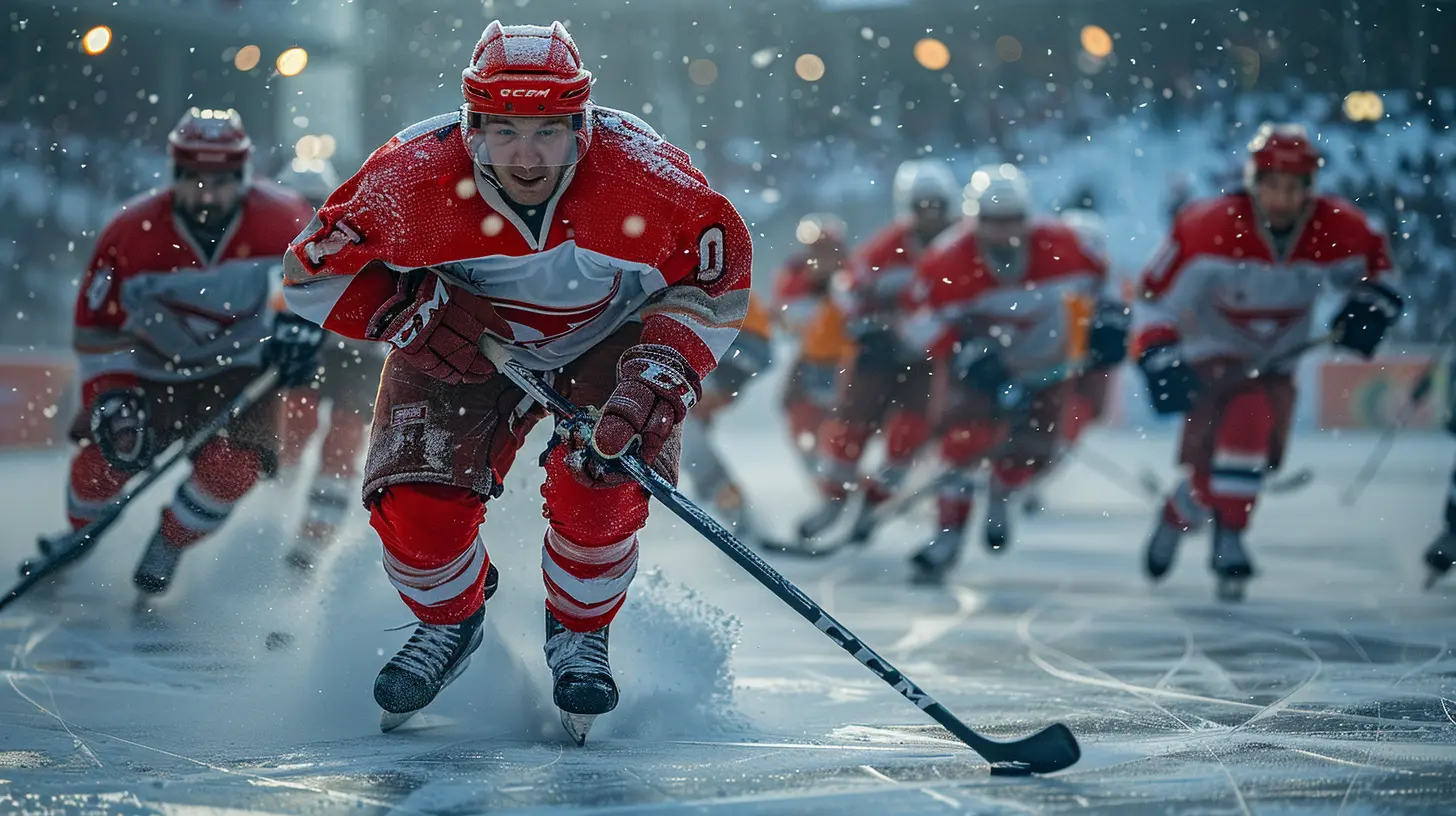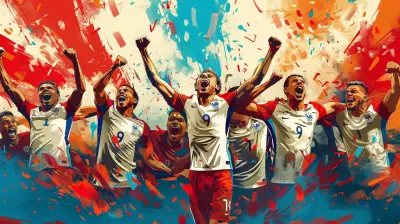Hockey and Mental Toughness: How to Stay Focused Under Pressure
25 October 2025
If you've ever laced up skates and stepped onto the ice, you already know—hockey isn't just a game of speed and skill. It’s also a mental grind. The pace is fast, the hits are hard, and the pressure? Oh, it's relentless. Whether you're defending a one-goal lead with minutes left or trying to bounce back after a brutal mistake, staying mentally tough is what separates the good players from the great ones.
Mental toughness in hockey isn’t just about pushing through pain or staying motivated—it's about focus, resilience, and emotional control. Let’s dive into how that plays out on the ice and in the mind, and how you can sharpen your mental game to stay cool under pressure.
What Is Mental Toughness in Hockey Anyway?
Before we go any deeper, let’s break it down. Mental toughness is essentially your ability to stay focused, resilient, and perform under pressure. It’s the stuff that keeps your head in the game when everything else is falling apart.Hockey is fast-paced and chaotic—you’ve got to make split-second decisions while skating at top speed, watching your teammates, reading the opposition, and keeping your cool when someone’s hammering you into the boards. Without mental toughness, all that pressure can crush even the most skilled players.
So, what does mental toughness actually look like in the rink?
- Staying calm after a bad call
- Bouncing back after a turnover or goal against
- Blocking out the crowd in a loud away game
- Keeping your head up in overtime after a rough shift
- Executing the game plan when fatigue kicks in
These aren’t just physical challenges—they’re mental battles happening in real time.
Why Pressure is Part of the Game
Pressure is unavoidable. In fact, it’s baked into the DNA of hockey. Tight games. Crazy fans. Big rivalries. Playoff overtime. There’s always something turning up the heat.And let’s be real—we’ve all seen players crack under that weight. Nerves take over, hands get shaky, decisions slow down. It’s not about lacking skill; it’s about losing focus.
But here's the twist: pressure isn't always the enemy. For mentally tough players, pressure becomes fuel. It sharpens their edge. They lean into it.
Think of pressure like weightlifting for your brain—it’s heavy, uncomfortable, and, if you train for it, it makes you stronger.
Building Your Mental Toughness Muscle
Just like shooting, passing, or skating, you can train mental toughness. It's not some mysterious talent—it's a skill set. And it starts with small habits and mindset shifts. Here's how to build it, one step at a time.1. Embrace the Grind
Let’s not sugarcoat it—hockey is tough. But that’s part of what makes it so addictive and rewarding. Mentally tough players actually welcome the grind. They understand that every tough practice, every hard shift, builds their edge.Start by reframing discomfort. Instead of dreading it, see it as your training ground. Get comfortable being uncomfortable. That’s where the growth is.
2. Stay in the Moment
This is a big one. Mental toughness often comes down to staying present. When your mind drifts to past mistakes or future outcomes, you're toast. You’re not reacting to what’s happening now—you’re reacting to something that isn’t even real anymore.Focus on what you can control in the moment—your effort, your positioning, your attitude. The scoreboard? The coach’s decisions? Your teammate's mess-up? All out of your hands.
Stay here. Stay now.
3. Use Routines to Anchor Yourself
Ever notice how the best players have little routines? Maybe it's the way they tape their stick, how they step onto the ice, or the warm-up playlist on repeat.These rituals aren’t just quirks—they’re mental anchors.
Routines build familiarity and calm your nerves. When everything around you is chaotic, routines give your brain a place to land. So, create your own. Maybe it’s a breathing exercise before each shift, or a mantra you repeat during breaks.
Make it yours. Keep it simple. Stick with it.
4. Self-Talk Is Your Secret Weapon
That voice in your head? It can either be your worst critic or your best coach. Mentally tough players know how to control their inner dialogue.Messed up a play? Shake it off: "Next shift. I’ve got this."
Feeling the pressure? Remind yourself: "I’ve been here. I’m ready."
Self-talk shapes your confidence more than you think. Tune out the negativity and pump yourself up with purpose.
5. Visualize Success
This isn’t just mumbo-jumbo—it’s backed by science and used by top athletes across all sports. Visualization is like mental reps for game situations.Take five minutes a day to mentally step into the game. Picture yourself making smart passes, scoring, backchecking hard, owning your position.
Your brain doesn’t totally distinguish between real and imagined actions. So, the more you visualize success, the more natural it becomes.
When the Pressure Peaks: Game Situations That Demand Grit
Let’s talk about the real-world moments that make or break your mental game. These are the times when your mental toughness is tested most.Overtime in Playoffs
The stakes couldn’t be higher. Every mistake is magnified. The crowd’s buzzing. You know one shot changes everything. How do you keep your focus?Tip: Break it down shift by shift. Don’t think about the win. Just think “one clean breakout,” then “one smart backcheck,” then “one strong shot.” Stack good moments. That’s how you stay locked in.
After a Bad Mistake
You rushed a pass, your turnover led to a goal. Brutal. But guess what? The game’s not over, and neither are you.Tip: Reset quickly. Slap your stick, take a breath, and move on. Your attitude will affect the whole bench. Be the example of resilience.
Loud, Hostile Environments
Away games can be intense—the crowd’s booing, the energy’s wild. It’s easy to feel overwhelmed.Tip: Use the noise. Let it fuel your adrenaline, not your anxiety. Block it out by narrowing your focus. Eyes on the puck. Ears off the crowd.
Coaches and Mental Toughness: Leading by Example
Coaches play a huge role in building (or breaking) mental toughness in their players. It’s not about yelling louder or pushing harder—it’s about setting the tone.Great coaches create a mentally tough culture by:
- Rewarding effort, not just results
- Encouraging growth from mistakes
- Modeling calm under pressure
- Giving players tools for focus and mindset
If you’re a coach reading this, remember: your players are watching how you handle pressure. Set the tone, and they’ll follow.
Parents and Mental Support
Parents, you're part of the team—just from the stands. The support you give can lift a player’s mental game or load more pressure on their shoulders.Here’s how to help:
- Focus on effort and attitude, not just stats or scores.
- Keep post-game talks positive and brief.
- Let them lead their own growth—don’t micromanage their mindset.
- Remind them it’s okay to mess up—it’s how they learn.
Sometimes the strongest boost to mental toughness comes from knowing someone’s in your corner no matter what.
Off-Ice Habits That Build Mental Grit
Mental toughness isn’t just built on the ice. Your off-ice habits play a massive role.Get Your Sleep
Seriously, don’t underestimate it. Lack of sleep tanks your concentration, decision-making, and emotional control. Aim for 8+ hours.Stay Fueled
Eat like an athlete. Your brain needs proper fuel to manage stress and focus under pressure.Exercise Your Mind
Read, journal, meditate—do things that sharpen your brain and calm your nerves. Think of it like “mental gym.” These reps count, too.Final Thoughts: Your Mind Can Be Your Biggest Weapon
Here’s the truth: talent gets you in the door, but mental toughness keeps you in the game.The players who stay calm, bounce back, and laser in under pressure—they’re the ones who make it count when it matters most. Whether you're a rookie learning the ropes or a vet grinding through another season, your mindset is just as important as your slapshot.
Mental toughness isn’t about being perfect—it’s about being prepared. It’s not about never feeling pressure—it’s about knowing how to handle it when it shows up.
So, next time the game’s on the line, and your heart’s pounding out of your chest, ask yourself: “Am I ready to lean in?”
Chances are, you are.
all images in this post were generated using AI tools
Category:
HockeyAuthor:

Umberto Flores
Discussion
rate this article
1 comments
Emery Snow
Mental toughness in hockey is about resilience; focus transforms pressure into performance. Embrace the challenge.
November 9, 2025 at 4:43 AM

Umberto Flores
Absolutely! Resilience and focus are key to thriving under pressure in hockey. Embracing challenges strengthens mental toughness.


